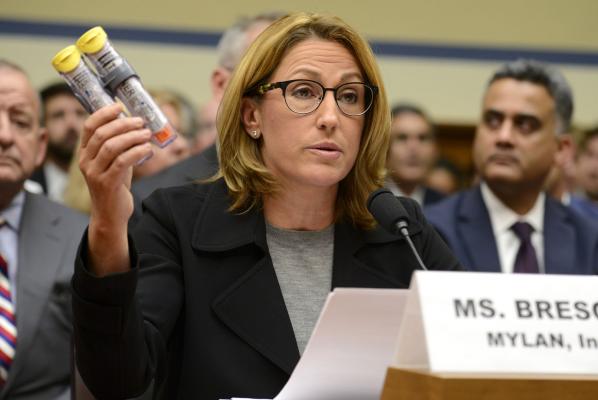
Aug. 17 (UPI) — Mylan, the drug company that manufactures the anti-allergy injector EpiPen, finalized a $465 million settlement with the federal government stemming from allegations it over-billed Medicaid for the drug.
The Justice Department alleged Mylan violated the False Claims Act by knowingly listing the EpiPen as a generic drug, which is subject to lower rebates under federal law, despite the fact there is no equivalent competitor to lower the price.
In order to prevent states from suffering price gouging by drug companies who own proprietary rights to name-brand drugs, the federal government forces those drug companies to offer a larger rebate for Medicaid recipients. By claiming EpiPens are generic drugs, the company avoided paying the higher rate, prosecutors said.
The Justice Department had filed a civil lawsuit against Mylan, which was resolved by virtue of Thursday’s settlement.
“Mylan misclassified its brand name drug, EpiPen, to profit at the expense of the Medicaid program,” Acting United States Attorney William D. Weinreb said. “Taxpayers rightly expect companies like Mylan that receive payments from taxpayer-funded programs to scrupulously follow the rules. We will continue to protect the integrity of Medicaid and ensure a level playing field for pharmaceutical companies.”
The settlement was announced last year, though it drew criticism from key lawmakers who said the amount was too low. The Department of Health and Human Services said Mylan may have overbilled Medicaid by as much as $1.27 billion for EpiPens.
“The fact that the EpiPen overpayment is so much more than anyone discussed publicly should worry every taxpayer,” Sen. Chuck Grassley, R-Iowa, chairman of the Senate Health Committee, said at a hearing in May.
In addition to the cash, Mylan will also be subject to a five-year “corporate integrity agreement” with the Department of Health and Human Services as part of the settlement. Accordingly, Mylan’s Medicaid billing will be subject to additional scrutiny by the department’s inspector general during that time.
Mylan CEO Heather Bresch said in a statement Thursday that settling the case was the “right course of action” for the company, and said the company has since released a generic version of the EpiPen that retails for half the cost.
Mylan endured intense public criticism last year when it raised the price of EpiPens from $40 to more than $600 for a two-pack, sparking public outcry and congressional hearings. In response, the company backed down, at first offering rebates for low-income patients, then releasing the generic EpiPen, which was cheaper than the name brand, but still more considerably more expensive than the previous cost for the potentially life-saving device many severe allergy sufferers must carry at all times.





